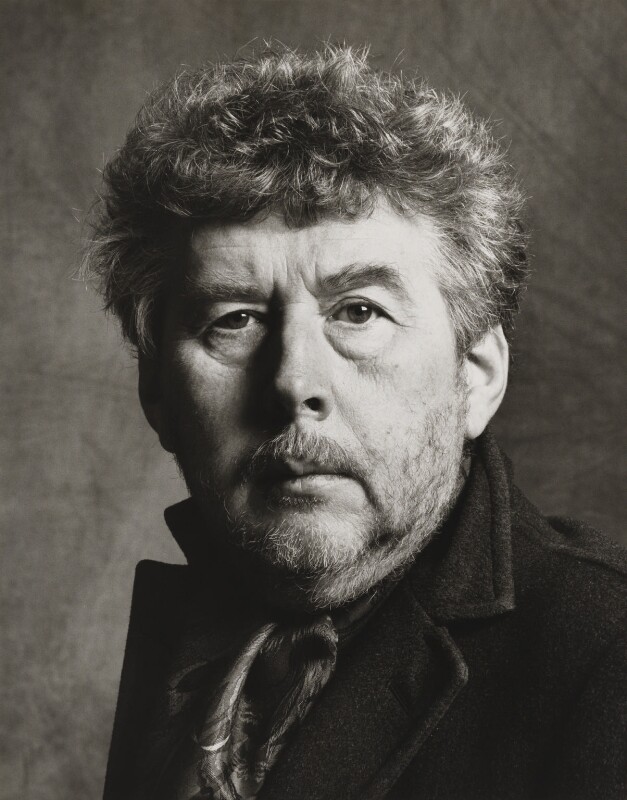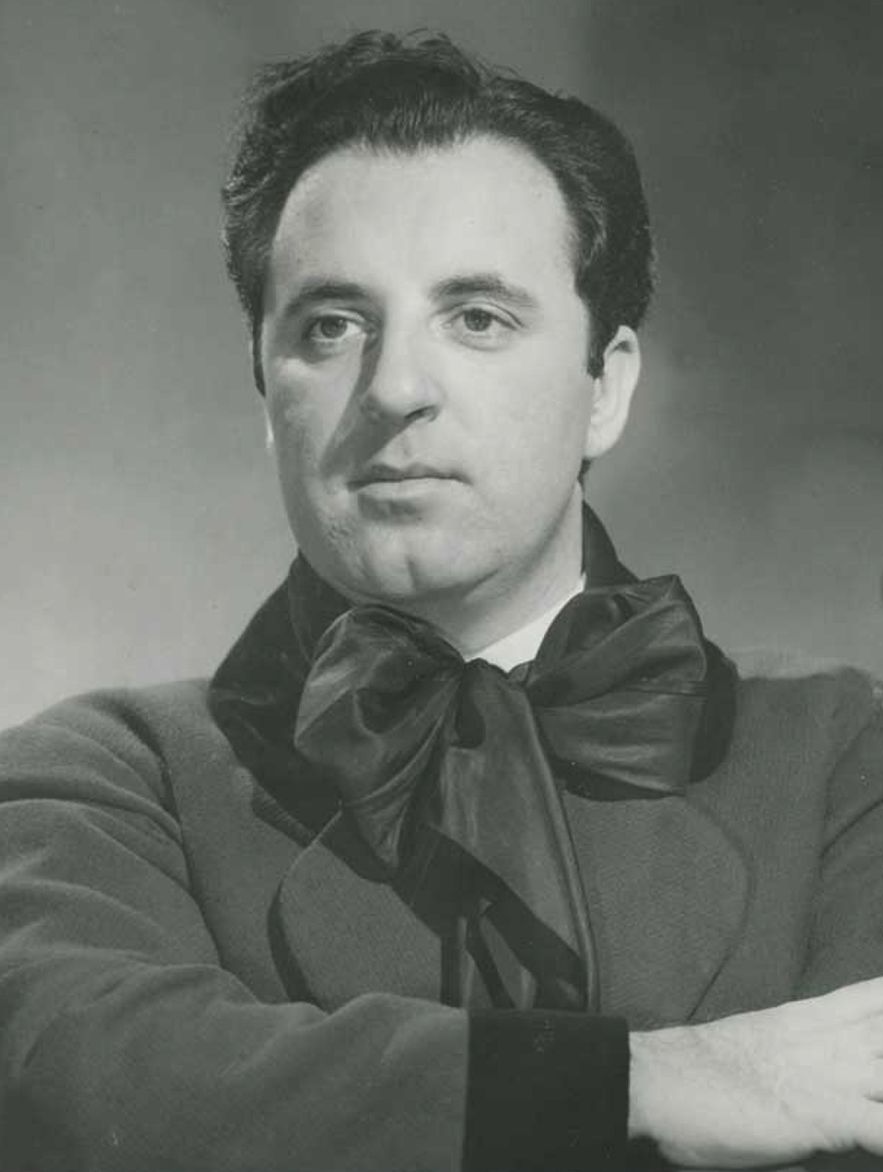This Week in Classical Music: July 11, 2022.Birtwistle and Bergonzi.One of the best-known British modern classical composers, Harrison Birtwistle, was born on July 15th of 1934 not far from Manchester (Birtwistle died less than three months ago at the age of 87).His music was thoroughly modern, sometimes evocative of Stravinsky and Messiaen, other times more formal, following Boulez and Stockhausen.In any event, it was very different from the music of the preceding generations of British composers, from Frederick Delius and Ralph Vaughan Williams to Benjamin Britten, although, like Britten, Birtwistle had written a number of operas (seven, to be exact).
The Triumph of Time is one of Harrison Birtwistle’s better known orchestral compositions.It was written in 1971-72.The title came from a complex (and quite macabre) 1574 woodcut by Pieter Bruegel the Elder, which Birtwistle stumbled upon while working on the composition.You can see it here in good resolution.In the woodcut the Time, a muscular middle-aged man, is in a carriage drawn by horses representing Sun and Moon.He’s followed by Death.Part of Bruegel’s inscription at the bottom of the carving says: “All that Time cannot grasp is left for Death,” but Time itself is devouring a child.Birtwistle’s work is far from being literal or macabre, but it is funerial in its overall tone.Birtwistle said of the piece that it’s "a processional in which nothing changes.”Whether it changes or not (and it does), the piece is fascinating and anything but dull, one reason being Birtwistle’s virtuosic use of multiple percussion.You can listen to The Triumph of Timehere; it’s performed live by the BBC Symphony Orchestra under the direction of Peter Eötvös.
Carlo Bergonzi, born on July 13th of 1924, was one of the greatest tenors of the mid-20th century and would’ve been even more famous had he not been a contemporary of Franco Corelli,Giuseppe di Stefano and Mario Del Monaco.What a time it was, when all of them were at the top of their careers in the 1960s!Add to the four Italians - a Spaniard, Alfredo Kraus, and compare these magnificent singers with the tenors of today…
Bergonzi started as a baritone (as, by the way, did Placido Domingo) and made his debut in a baritone role as Rossini’s Figaro in 1948.For the following three years he sung many challenging baritone roles, including Silvio in Leoncavallo’s Pagliacci, Lescaut in Puccini’s Manon Lescaut, and Rigoletto.Then in 1951 he realized that his voice is naturally better suited for tenor roles and, after retraining and studying the tenor repertory he made a second debut, this time as a tenor in the title role of Andrea Chénier.He made his La Scala debut in 1953 and went on to sing at the famed opera theater for the next 20 years.He first sang in the US in 1955, in Chicago, and a year later debuted at the Met, where he regularly appeared for the next 30 years, till 1988.
Bergonzi sang in more than 40 roles, Verdi’s operas constituting the core of his repertory.Here is the famous Celeste Aida from Act I of Verdi’s Aida in Bergonzi’s superb rendition. Nello Santi conducts the New Philharmonia Orchestra.
Birtwistle and Bergonzi, 2022
This Week in Classical Music: July 11, 2022. Birtwistle and Bergonzi. One of the best-known British modern classical composers, Harrison Birtwistle, was born on July 15th of 1934 not far from Manchester (Birtwistle died less than three months ago at the age of 87). His music was thoroughly modern, sometimes evocative of Stravinsky and Messiaen, other times more formal, following Boulez and Stockhausen. In any event, it was very different from the music of the preceding generations of British composers, from Frederick Delius and Ralph Vaughan Williams to Benjamin Britten, although, like Britten, Birtwistle had written a number of operas (seven, to be exact).
from Manchester (Birtwistle died less than three months ago at the age of 87). His music was thoroughly modern, sometimes evocative of Stravinsky and Messiaen, other times more formal, following Boulez and Stockhausen. In any event, it was very different from the music of the preceding generations of British composers, from Frederick Delius and Ralph Vaughan Williams to Benjamin Britten, although, like Britten, Birtwistle had written a number of operas (seven, to be exact).
The Triumph of Time is one of Harrison Birtwistle’s better known orchestral compositions. It was written in 1971-72. The title came from a complex (and quite macabre) 1574 woodcut by Pieter Bruegel the Elder, which Birtwistle stumbled upon while working on the composition. You can see it here in good resolution. In the woodcut the Time, a muscular middle-aged man, is in a carriage drawn by horses representing Sun and Moon. He’s followed by Death. Part of Bruegel’s inscription at the bottom of the carving says: “All that Time cannot grasp is left for Death,” but Time itself is devouring a child. Birtwistle’s work is far from being literal or macabre, but it is funerial in its overall tone. Birtwistle said of the piece that it’s "a processional in which nothing changes.” Whether it changes or not (and it does), the piece is fascinating and anything but dull, one reason being Birtwistle’s virtuosic use of multiple percussion. You can listen to The Triumph of Time here; it’s performed live by the BBC Symphony Orchestra under the direction of Peter Eötvös.
Carlo Bergonzi, born on July 13th of 1924, was one of the greatest tenors of the mid-20th century and would’ve been even more famous had he not been a contemporary of Franco Corelli, Giuseppe di Stefano and Mario Del Monaco. What a time it was, when all of them were at the top of their careers in the 1960s! Add to the four Italians - a Spaniard, Alfredo Kraus, and compare these magnificent singers with the tenors of today…
Giuseppe di Stefano and Mario Del Monaco. What a time it was, when all of them were at the top of their careers in the 1960s! Add to the four Italians - a Spaniard, Alfredo Kraus, and compare these magnificent singers with the tenors of today…
Bergonzi started as a baritone (as, by the way, did Placido Domingo) and made his debut in a baritone role as Rossini’s Figaro in 1948. For the following three years he sung many challenging baritone roles, including Silvio in Leoncavallo’s Pagliacci, Lescaut in Puccini’s Manon Lescaut, and Rigoletto. Then in 1951 he realized that his voice is naturally better suited for tenor roles and, after retraining and studying the tenor repertory he made a second debut, this time as a tenor in the title role of Andrea Chénier. He made his La Scala debut in 1953 and went on to sing at the famed opera theater for the next 20 years. He first sang in the US in 1955, in Chicago, and a year later debuted at the Met, where he regularly appeared for the next 30 years, till 1988.
Bergonzi sang in more than 40 roles, Verdi’s operas constituting the core of his repertory. Here is the famous Celeste Aida from Act I of Verdi’s Aida in Bergonzi’s superb rendition. Nello Santi conducts the New Philharmonia Orchestra.